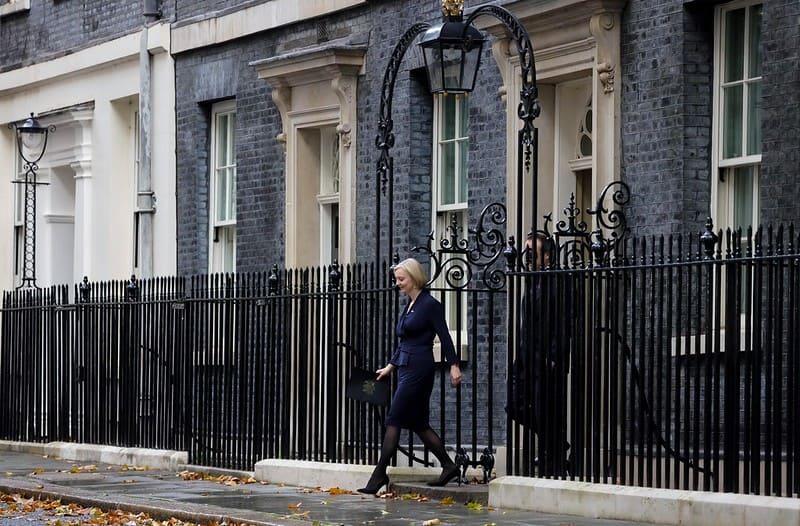
- About UPF-BSM
- Programs
- Faculty and research
- Companies and Organizations
- News & Events
Leadership crisis in the UK
20 Octubre - 2022
Jaime Batlle
Director of the Postgraduate Course in Executive Development in Sustainable Business
__
One of the pillars of all leadership is to lead the project to success, which is unavoidable, even more so in politics, and especially in democratic societies Bringing people to stable and legally guaranteed environments, which, in short and in very broad strokes, consists of providing an environment of economic stability, supported by the legal guarantees inherent to any democratic society.
The United Kingdom is undoubtedly a democratic society and, as such, the errors of its leaders are contested politically and also by civil society, subject to control mechanisms in direct proportion to the democratic quality of the society in which they are inserted.
Former British premier Liz Truss, who resigned just 44 days after taking office, was facing a serious leadership crisis
What has happened to the now former British Prime Minister Liz Truss, who resigned just 44 days after taking office, is a technical error of major dimensions due to the magnitude of the problem caused, as nothing can react faster to the markets.
Economic storm
In the UK, private pension schemes are fare more prevalent than public ones, as the latter are much lower than in other neighbouring countries. These private funds manage assets worth 2.3 trillion euros, on the reliability of whose investment management the pensions of the majority of British pensioners depend.
In recent years, these funds have tried to balance their assets/liabilities through LDI, a bond-based investment product. In short: through fund managers and with loans from investment banks, they buy interest rate derivatives. The problem arose when, after the Truss government's announcement, the pound plummeted, as the stated tax cut implied an increase in government debt of 200 billion euros, causing the 30-year UK bond to rise in yield and fall in value.
Truss dismissed Kwarteng as head of the finance ministry and placed a moderate centrist like Jeremy Hunt, who was to be the visible head of the rectification to calm the markets
This storm generated what is called a "fire sale", a massive sale of bonds, which negatively affected pension funds by requiring LDIs to actually increase the collateral posted at the derivatives clearing house (margin call). But as pension funds need immediate liquidity to pay pensions, their sale implied a further degradation of their value.
The Bank of England came to the rescue with massive bond purchases, but has already warned that it may not be possible to protect all these pension schemes –based on the reaction of the markets– if they continue to manage such funds at risky levels (the lesson of which seemed to have been learned after the 2008 financial crisis).
For this reason, the British prime minister dismissed her friend and Chancellor of the Exchequer, Kwasi Kwarteng, and placed a moderate centrist like Jeremy Hunt at the head of the economic portfolio, who was suposed to be the visible head of the rectification to calm the markets and buy time, which he finally failed to do by announcing his resignation. His situation was therefore completely unsustainable, as reality has ratified.
The Truss mistake
From a technical point of view, it is difficult to explain the mistake, and even more so at these levels of competition, because in the midst of galloping inflation, rising interest rates and recession around the corner, a 200 billion euro hole was not exactly going to strengthen the pound.
It is difficult to place Truss's technical error in the context in which the UK currently finds itself. The three keys to understanding the current British scenario are the maintenance of the pound, Brexit and the concentration of capital management as an economic alternative to the loss of its colonial influence.
The three keys to understanding the current British scenario are the maintenance of the pound, Brexit and the concentration of capital management as an economic alternative to the loss of its colonial influence
The "accident" in the form of a flagrant technical error by Boris Johnson's successor must be isolated from the general context in which the UK finds itself. An environment in which the knot to be resolved is to define the management of Brexit, as this will have a major impact on its trade relations and, therefore, its economy. The UK has demonstrated its strong Atlanticist commitment in the Ukrainian scenario, which can be seen as a "pendulum swing" effect with respect to Brexit.
In any case, British exceptionalism is in full force today and this characteristic idiosyncrasy has led to grotesque situations, such as a guy like Johnson being able to occupy 10 Downing Street or the technical error of Truss. But the grotesque is usually accompanied by causal derivatives such as, for example, the death of Elizabeth II, which implies the end of an era.
We are now in another global scenario in which the United Kingdom is struggling to fit in, trying to maintain its exceptionality. Perhaps Liz Truss's mistake can be understood here: she thought she could be Margaret Thatcher, but the world is not the same it was 40 years ago, even if some current leaders –and not only British ones– still believe so. And if not, just ask Putin.